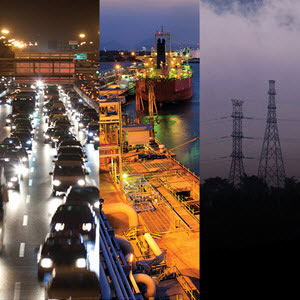The Decarbonization of India’s Energy Sector
Challenges in Ratcheting Up Nationally Determined Contributions
This essay identifies the factors behind India meeting its energy-related nationally determined contributions (NDCs) in the Paris Agreement and then analyzes whether these factors will hold up as India embarks on a mission to simultaneously industrialize and decarbonize.
EXECUTIVE SUMMARY
MAIN ARGUMENT
India is likely to meet its energy-related NDCs to decrease its carbon intensity because of pre-existing trends that have decreased energy intensity. First, the switch from biomass that has very low conversion efficiency to high-efficiency fossil fuel–based fuels enabled growth in economic activity without commensurate growth in energy consumption. Second, the shift in structural composition of growth in favor of the services sector was less energy-intensive than growth dominated by industry. Third, production and consumption processes increased technical efficiency. Fourth, India’s slow pace of industrialization and the consequent low per capita energy consumption limited the increase in carbon intensity. However, the contribution from these trends toward a further increase in NDC targets may be limited. To achieve the twin goals of industrialization and decarbonization, India cannot continue to depend on inherent factors that contributed to a reduction of energy and carbon intensity in the past. Instead, it must enact clear policies that promote the production of green products and services.
POLICY IMPLICATIONS
- India needs to articulate unambiguous policies that are designed to combine industrialization with decarbonization. Export-oriented policies for production of green goods (products and services that use or produce green energy) hold the greatest potential to simultaneously achieve the goals of decarbonization and industrialization.
- Trends that contributed to lowering energy intensity in the past two decades cannot be relied on for future decarbonization, which means India will need to lean heavily on policies for increasing the share of clean energy.
- As most external funds for decarbonization are likely to take the form of investment rather than aid, policies need to prioritize clean energy–based industries where India can gain a competitive advantage over its more mature rivals.
Lydia Powell is a Senior Fellow at the Observer Research Foundation in India.



 Toward Energy and Climate Security: Pathways and Priorities for Cooperation in 2022
Toward Energy and Climate Security: Pathways and Priorities for Cooperation in 2022
